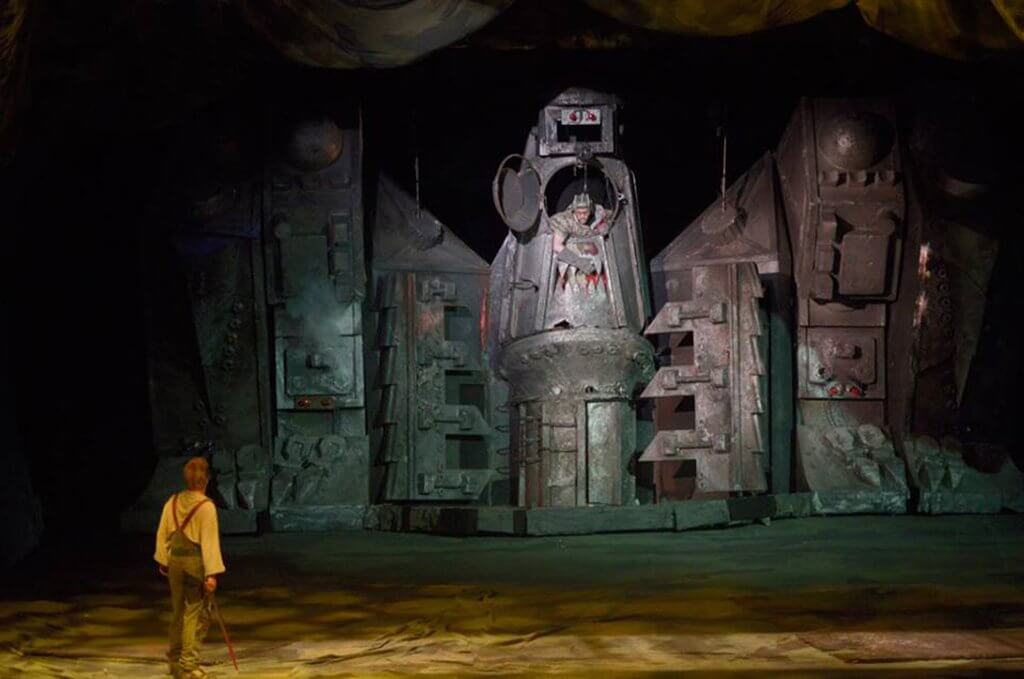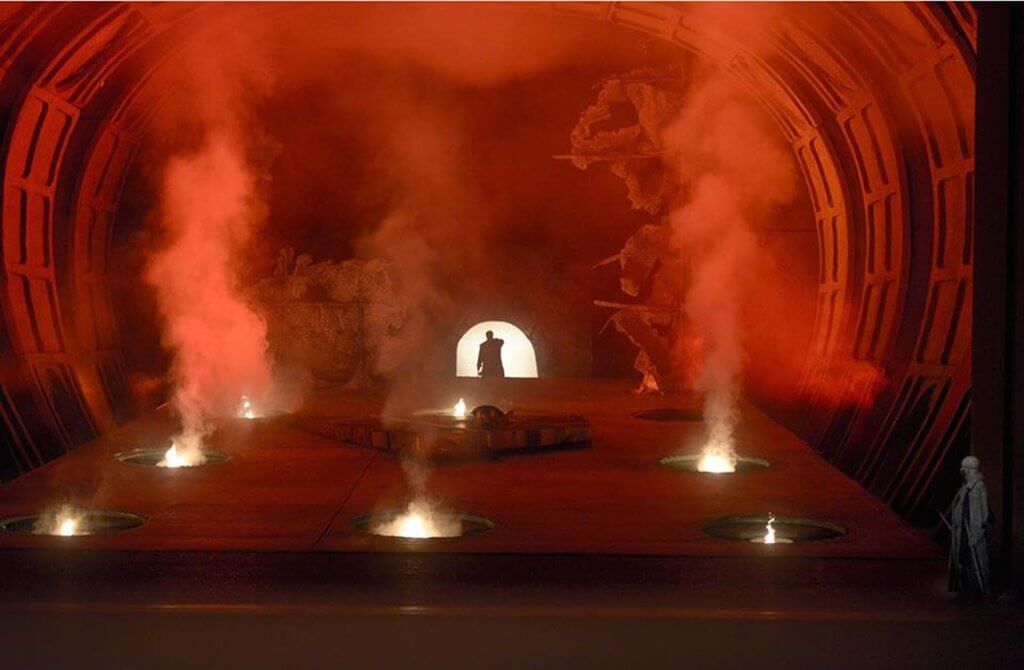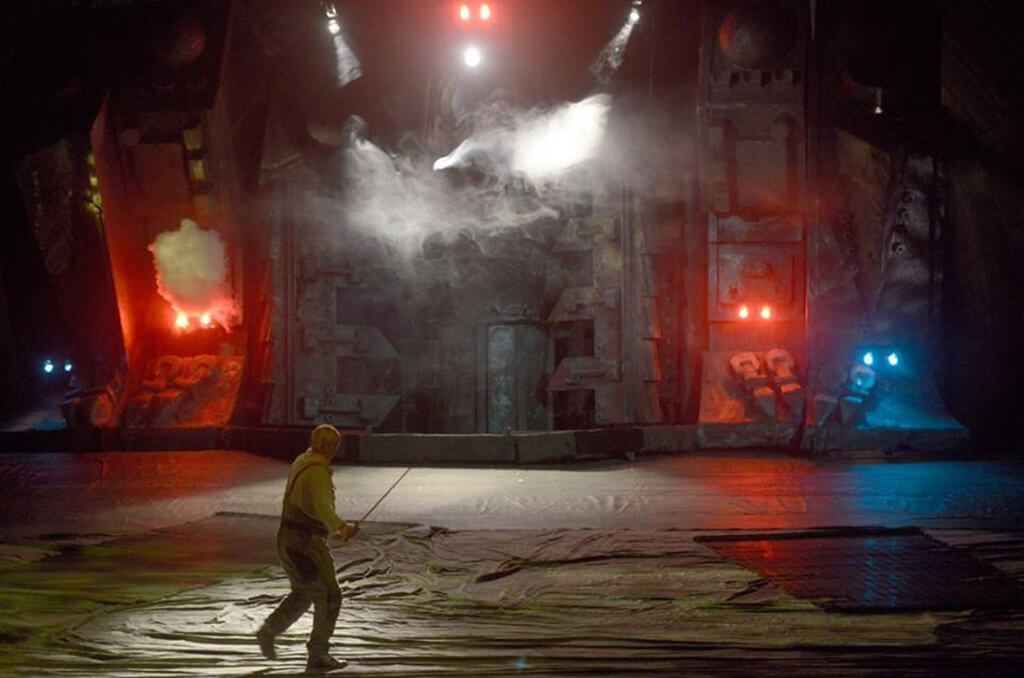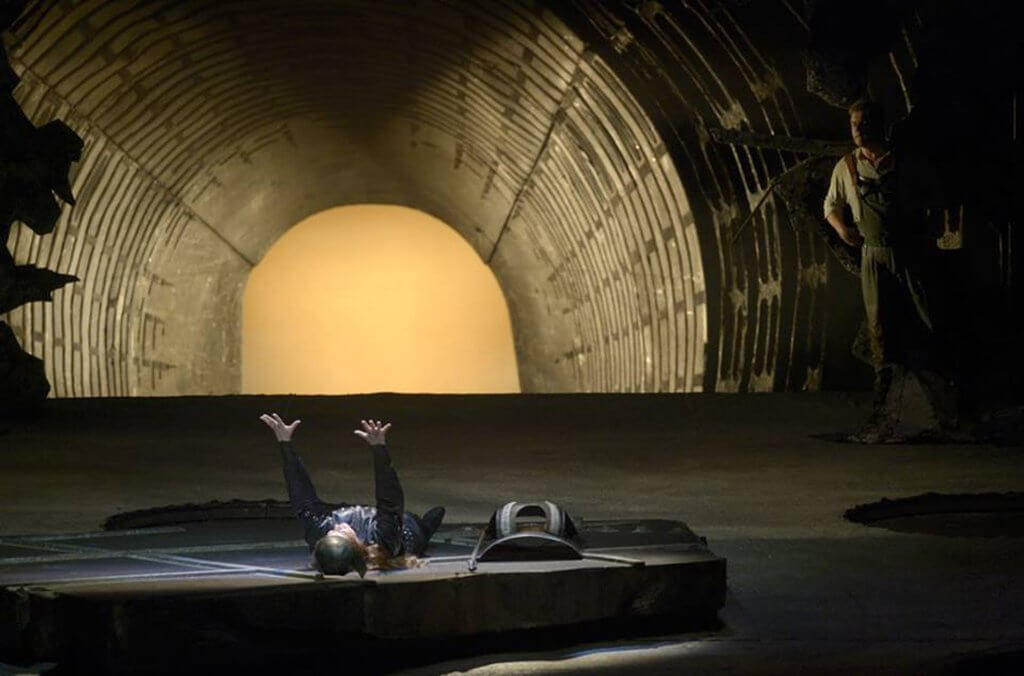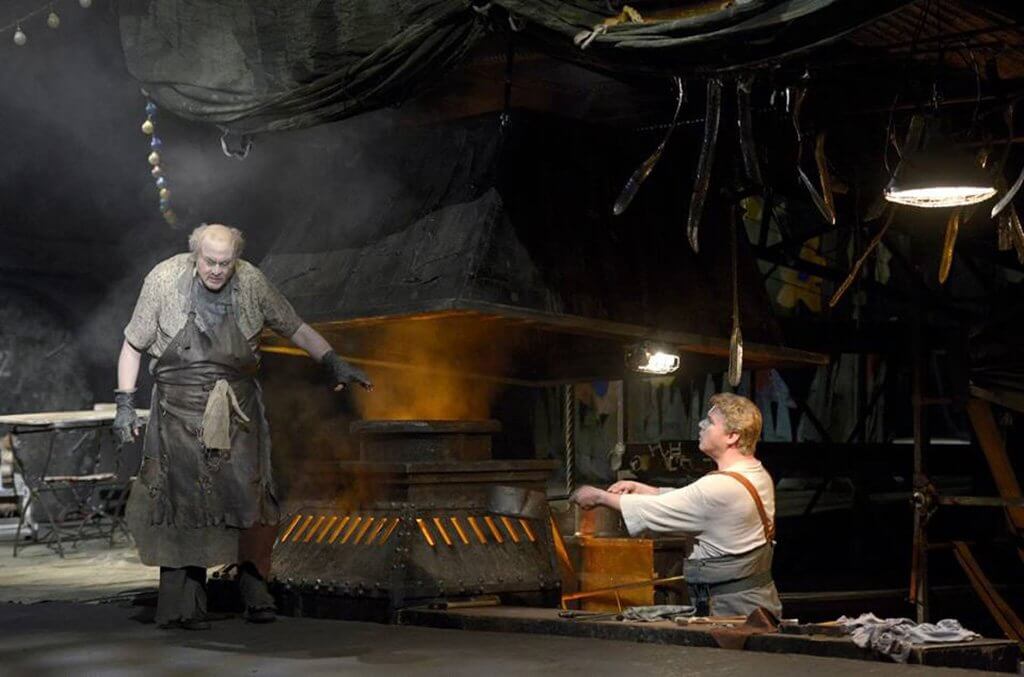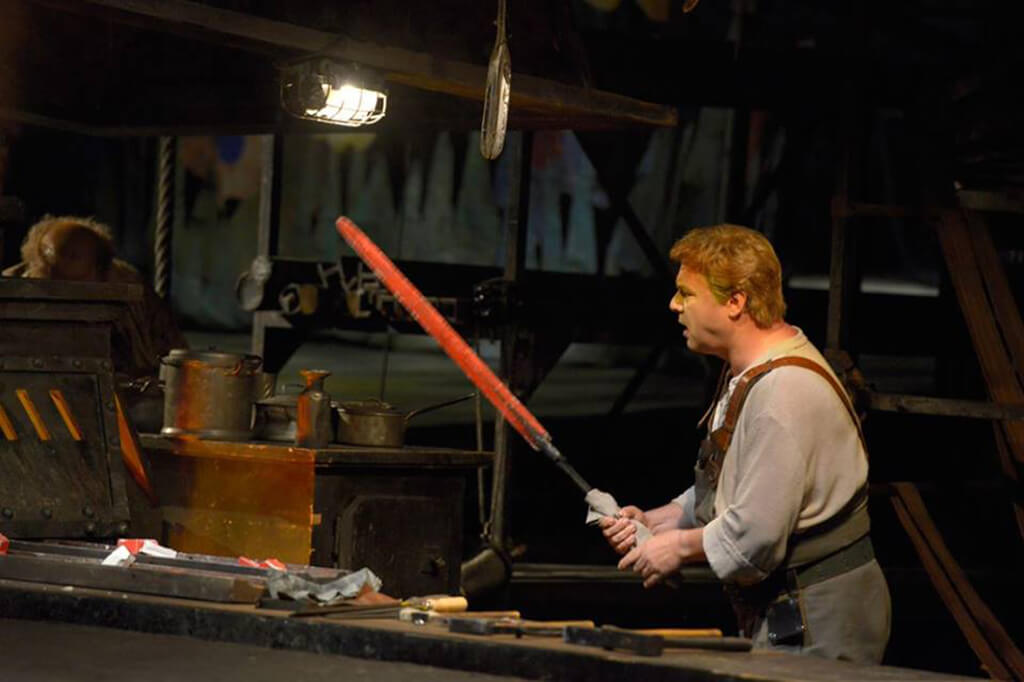
- SCRUTINY | Opera Atelier’s All Is Love Makes Triumphal Return - April 15, 2024
- SCRUTINY | From The Heart: Ema Nikolovska And Charles Richard-Hamelin Offer Unique Program At Koerner Hall - March 26, 2024
- SCRUTINY | The Glenn Gould School Spring Opera Presents A Superb Dialogues Des Carmélites - March 22, 2024
Richard Wagner: Siegfried. Stefan Vinke, Ricarda Merbeth, Burkhard Ulrich, Samuel Youn, Werner von Mechelen, Andrew Harris, Ronnita Miller, Elbenita Kajtazi. Donald Runnicles, conductor. Das Orchester der Deutschen Oper Berlin. Apr 15, 2017.
It’s said that Siegfried is the “problem child” of the Ring Cycle, literally and figuratively. The central character, the young Siegfried, is the archetypal anti-hero, brash, naīve, impulsive, and ungrateful — after all, it’s not everyday that one kills the person who raises you. It’s also not common to have a tenor anti-hero. Usually it’s the baritones and the basses going rogue. Others cite the lack of female voices in Siegfried — one has to wait two and a half hour for the first woman’s voice, in this case the Forest Bird. There’s plenty of humour, in a rather heavy-handed way, but the seemingly interminable antics of Mime can get tiresome in no time.
Despite these longueurs, there’s nothing that a great cast can’t fix, starting with an authentic Heldentenor in the title role. And tonight the German tenor Stefan Vinke fit the bill very nicely. Mr. Vinke made a sensational Canadian Opera Company debut as the young Siegfried in February 2016. I noted in my review at the time his “indefatigable” stamina and his “cIarion-toned” high C. “Impetuous” is an apt description of Vinke’s Siegfried. With his curly blond wig, overalls and the occasional wide grin, Vinke was likely what the late comedienne Anna Russell had in mind when she called the character “a regular L’il Abner.”
Few heroic tenors can fulfill every demand of the role of Siegfried. I’m not old enough to have witnessed Melchior or Windgassen, but I have seen many, including Manfred Jung, Siegfried Jerusalem, and Rene Kollo. Interestingly, three of the current Siegfrieds — Jay Hunter Morris, Andreas Schager, and Stefan Vinke, are among the best. Vinke never sounded better this evening. Perhaps not exactly subtle in characterization — who is? — but one can’t help but be impressed with his youthful, trumpet-like sound, easy top and unflagging energy. He does have a habit of suppressing his consonants so he sounds like he has a slight lisp. The Forging Scene, staged very traditionally, was executed flawlessly by Vinke. By contrast, he was seriously underutilized in the lame staging of the COC production, with no fire and no forging of Nothung.
Soprano Ricarda Merbeth, a fine Aegyptische Helena last season (also opposite the Menelaus of Vinke), was a warm and sympathetic Brunnhilde. But vocally the role proved to be an uncomfortable fit for her essentially lyric soprano. In the quieter passages she was very good, but in forte moments, a pronounced vibrato and the occasional strident tone marred an otherwise very good effort. Korean bass-baritone Samuel Youn (Wanderer) sang well if just a bit small-scale. Contralto Ronnita Miller was once again an impressive Erda, especially in the lowest reaches of her voice. Mime was sung expertly by Burkhard Ulrich, who has the perfect character tenor voice, although I do find much of his music rather tedious after awhile. I would be remiss if I don’t mention the sparkling tone of Elbenita Kajtazi as the Forest Bird, singing beautifully when suspended in the air. Why the costume included exposed fake breasts is anyone’s guess.
I should mention that in the first intermission, there was an autograph signing session with four artists previously involved in the Friedrich Ring — Soprano Karan Armstrong, the widow of Götz Friedrich and once the Sieglinde; Matti Salminen, the great Finnish bass and an incomparable Hagen; the ageless Hanna Schwarz who sang Fricka; and Peter Sykora, the set and costume designer of this production. The lineup at the signing was immense, showing once again the loyalty and long memory of the Wagner Opera public.
Like the two previous Ring segments, the orchestra under Donald Runnicles played superbly. We all know how temperamental the brass instruments can be, but I’ve only noticed a few slightly off-centered notes in the whole five hours. The string section was warm and clear. The back of the tunnel is closed off for Act 1 to depict the cave dwelling of Mime, and for the forest scene in Act 2. I found myself ignoring the setting and focusing on the characters and the music. The Friedrich Dragon was a bit of a letdown, however, basically immovable and unmenacing, looking for all like a wall of seriously rusted control panels. In the forest scene, the ingenious lighting added some welcome colours to the proceedings. Perhaps not a Siegfried for the ages, but the outstanding performance by Stefan Vinke lifted it out of the ordinary. He deservedly got the biggest ovation at the end. Tomorrow I’m taking a break from the Ring to sample a little Richard Strauss, or should I say a big Richard Strauss given it’s a comparative marathon at four-plus hours, the rarely performed Die Frau ohne Schatten at the Staatsoper. Stay tuned.
For more REVIEWS, click HERE.
#LUDWIGVAN
- SCRUTINY | Opera Atelier’s All Is Love Makes Triumphal Return - April 15, 2024
- SCRUTINY | From The Heart: Ema Nikolovska And Charles Richard-Hamelin Offer Unique Program At Koerner Hall - March 26, 2024
- SCRUTINY | The Glenn Gould School Spring Opera Presents A Superb Dialogues Des Carmélites - March 22, 2024

